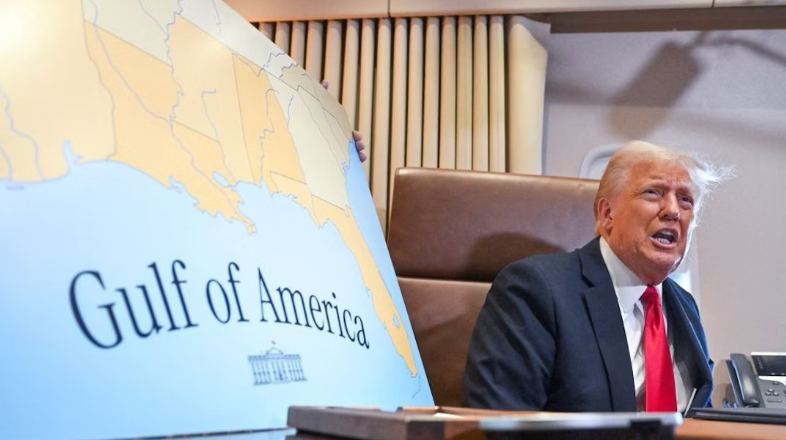Trump White House Bars Associated Press from Oval Office and Air Force One Over Refusal to Use “Gulf of America” Name
In a bold move against what the administration calls media bias, the White House has indefinitely banned The Associated Press (AP) from the Oval Office and Air Force One after the outlet refused to adopt President Donald Trump’s directive to rename the “Gulf of Mexico” to the “Gulf of America.”
Standing Against Media Defiance
The dispute began when Trump signed an executive order mandating the name change of the Gulf of Mexico, asserting that the rebranding is part of a broader effort to promote American sovereignty and national identity. The AP, however, continued using the traditional name, citing its commitment to “global audiences” and its editorial independence.
Deputy White House Chief of Staff Taylor Budowich defended the administration’s stance, stating, “The Associated Press’ refusal to acknowledge the directive exposes their commitment to misinformation.”
While Budowich acknowledged that the First Amendment protects the AP’s editorial decisions, he emphasized that it “does not guarantee them unfettered access to exclusive White House events like those in the Oval Office and aboard Air Force One.”
Media Backlash and White House Response
The AP condemned the ban, claiming it undermines press freedom. AP spokeswoman Lauren Easton argued, “Restricting AP coverage because of how we refer to a geographic location undermines a fundamental American right—the right to an independent press.”
However, White House officials have doubled down, dismissing the media outrage as “overblown theatrics from an outlet that has shown clear bias against this administration.” The administration insists that news organizations have a responsibility to report facts within the framework of America’s interests, rather than pushing globalist narratives that ignore presidential directives.
A New Era of Media Accountability?
This move signals a potential shift in how the Trump White House will handle media organizations that it believes operate with a partisan agenda. Some conservatives argue that news outlets have been given free rein for too long, using press credentials as a shield against accountability.
With the AP now cut off from key White House access, the battle over media influence, presidential authority, and the role of the press in shaping public discourse is far from over. As Trump continues to reshape Washington on his terms, one thing is clear—the days of unchecked media narratives are coming to an end.

